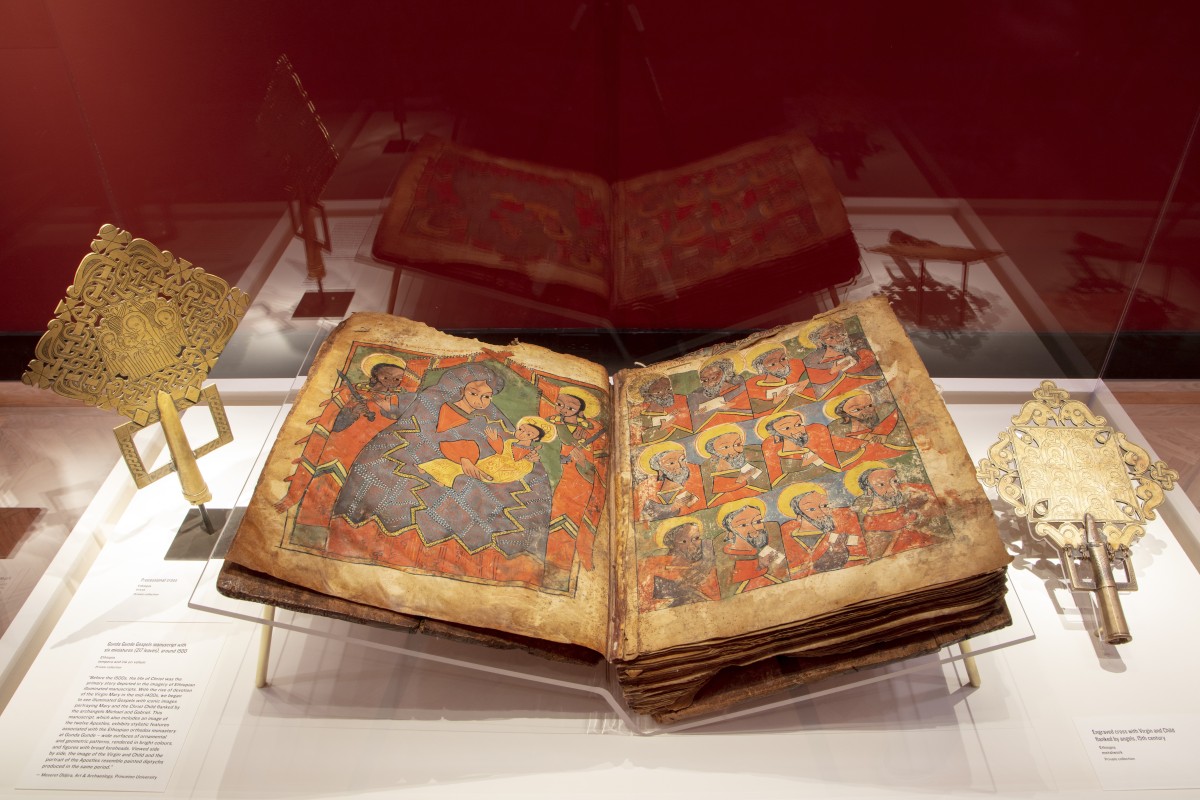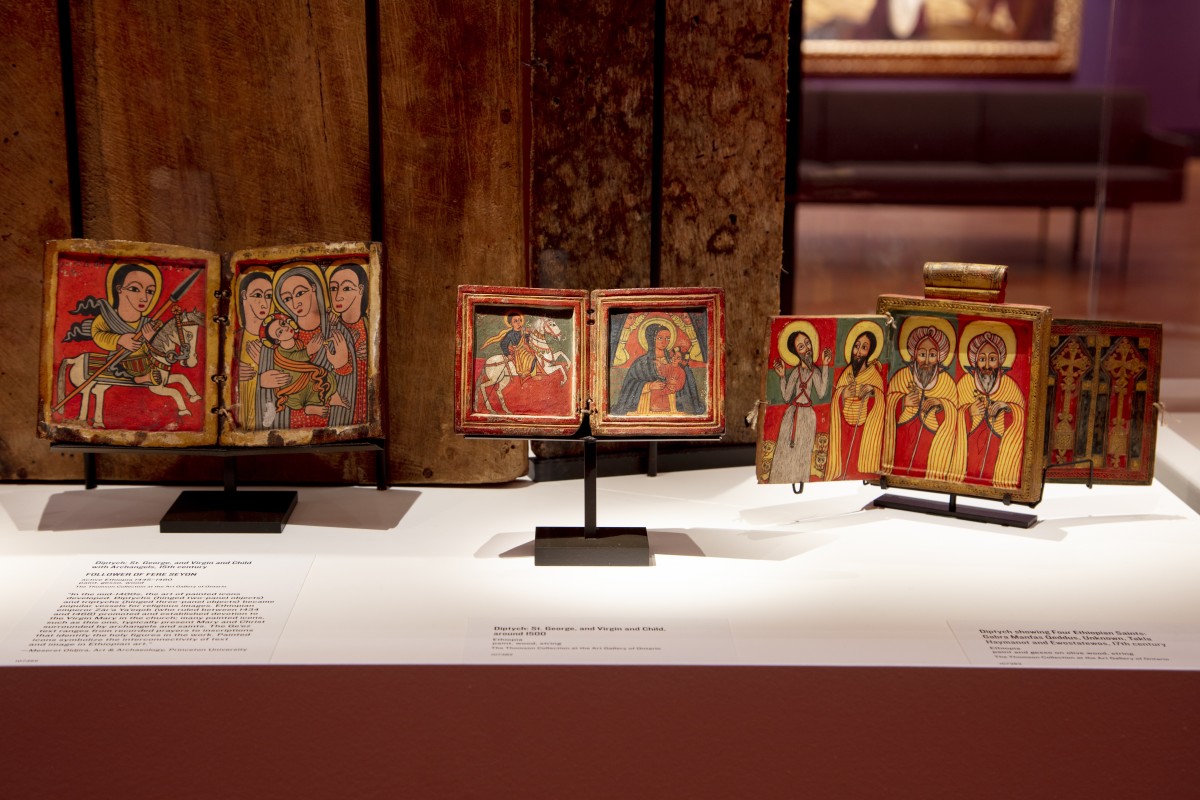Art Pick of the Week: Ethiopian Art, 1400–1900: A Living Culture
Every week we’re sharing one of our favourite artworks from the AGO Collection. ICYMI the first time we shared this story, this week's art pick features two pieces of Ethiopian art from the Middle Ages.

When we say the word “Medieval”, what image comes to mind? Chances are it’s not the cultural hotbed of Ethiopia of the Middle Ages, with its advanced civilizations like the Kingdom of Aksum and complex language systems like Ge'ez. Head to Level 1 in the Thomson Collection of European Art (Gallery 116) to check out this week’s Art Pick, Ethiopian Art, 1400–1900: A Living Culture. In case you missed it the first time, we’re revisiting a close look we took last year at this collection of sacred Ethiopian artifacts, illuminating this fascinating era in the region.
Ethiopia’s Aksumite Kingdom converted to Christianity in the 4th century, prompting the rise of Christian literary and artistic traditions. Today, more than half of Ethiopia’s population identifies as Christian, and objects like the ones on display in the exhibition still hold cultural significance.
As you walk through the gallery space, you’ll see hand crosses, manuscripts, scrolls and icons that illustrate the story of Ethiopia’s religious rise.
During their time of origin, pieces like Hand Cross, 15th century, which has careful latticework and near-perfect symmetry, and the intricately carved designs and bold imagery of the object Diptych: St. George and the Dragon; Virgin and Child with Saints, would have held great religious importance to people of the church. As you admire these items, imagine them in their previous lives, lit by nothing more than candlelight, adorning places of worship or gracing the hands of religious figures.
In this video, Seeta Changanti (Professor of English Literature at the University of California) and Andrea Myers Achi (Assistant Curator of Medieval Art at the Metropolitan Museum of Art) discuss these two unique pieces and explain their symbolism.
Experience it for yourself. Ethiopian Art, 1400–1900 is located on Level 1 in the Thomson Collection of European Art.
Admission to the AGO Collection and all special exhibitions is always free for AGO Members, AGO Annual Pass holders and visitors 25 and under.

